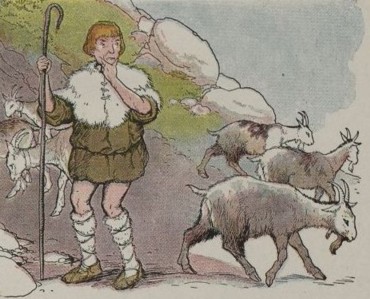| 1. pack | /pak/ |
| -a group of animals, such as dogs, that live and/or hunt together | |
| A pack of wild dogs went up the hill. | |
| 2. lurk | /lurk/ |
| -to wait or move in a secret way so that you cannot be seen, especially because you are about to attack someone or do something wrong | |
| Why are you lurking around in the hallway? | |
| 3. pasture | /PAS-cher/ |
| -land covered with grass or similar plants suitable for animals, such as cows and sheep, to eat | |
| The best places to find bluebirds are open pastures. | |
| 4. hostility | /ho-STIL-i-tee/ |
| -an occasion when someone is unfriendly or shows that they do not like something | |
| They showed hostility toward their new neighbors. | |
| 5. stir up | /stur-uhp/ |
| -to cause an unpleasant emotion or problem to begin or grow | |
| The pictures stirred up some painful memories. |
“Why is there always this hostility between us?” they said. “If it were not for those Dogs who are always stirring up trouble, I am sure we should get along beautifully. Send them away and you will see what good friends we shall become.”
The Sheep were easily fooled. They persuaded the Dogs to go away, and that very evening the Wolves had the grandest feast of their lives.
Do not give up friends for foes.
| 1. | What did the pack of wolves do near the Sheep pasture? |
| 2. | What did the Wolves advise the Sheep to do? |
| 3. | How was the Sheep fooled in the story? |
| 1. | What do you think the Dogs felt when they were driven away by the Sheep? |
| 2. | What do you think the Sheep realized at the end? |
| 3. | Do you think the Dogs would also be fooled by the Wolves? Why or why not? |
| 4. | What kinds of friends do you have? Please tell me more about it. |
| 5. | How do you build trust in friendships? |
| Grammar 文法 |
Pronunciation 発音 | Vocabulary 単語 |
Comprehension 理解 |
|
|---|---|---|---|---|
 GOOD GOOD |
文法の誤りはほとんどなく、完全な文章で話すことができる | ほとんどの単語をはっきりと正しく発音することができる | 習った表現を適切に使うことができる | 文章を理解し、質問に正しく答えることができる |
 FAIR |
文法の誤りはあるが、完全な文章で話すことができる | 発音の練習が必要な言葉がいくつかある | たまにミスはあるが、習った表現を適切に使うことができる | 文章を完全に理解するのは難しく、質問に正しく答えられないときもある |
 POOR |
文章で話すのは難しく、単語だけで話すことができる | 発音の練習が必要である | 習った単語と表現を少しだけ使うことができる | 文章を理解するのは難しく、質問に答えるのは難しい |
An eBook from The Project Gutenberg.
This eBook is for the use of anyone anywhere at no cost and with almost no restrictions whatsoever. You may copy it, give it away or re-use it under the terms of the Project Gutenberg License included with this eBook or online at www.gutenberg.org





